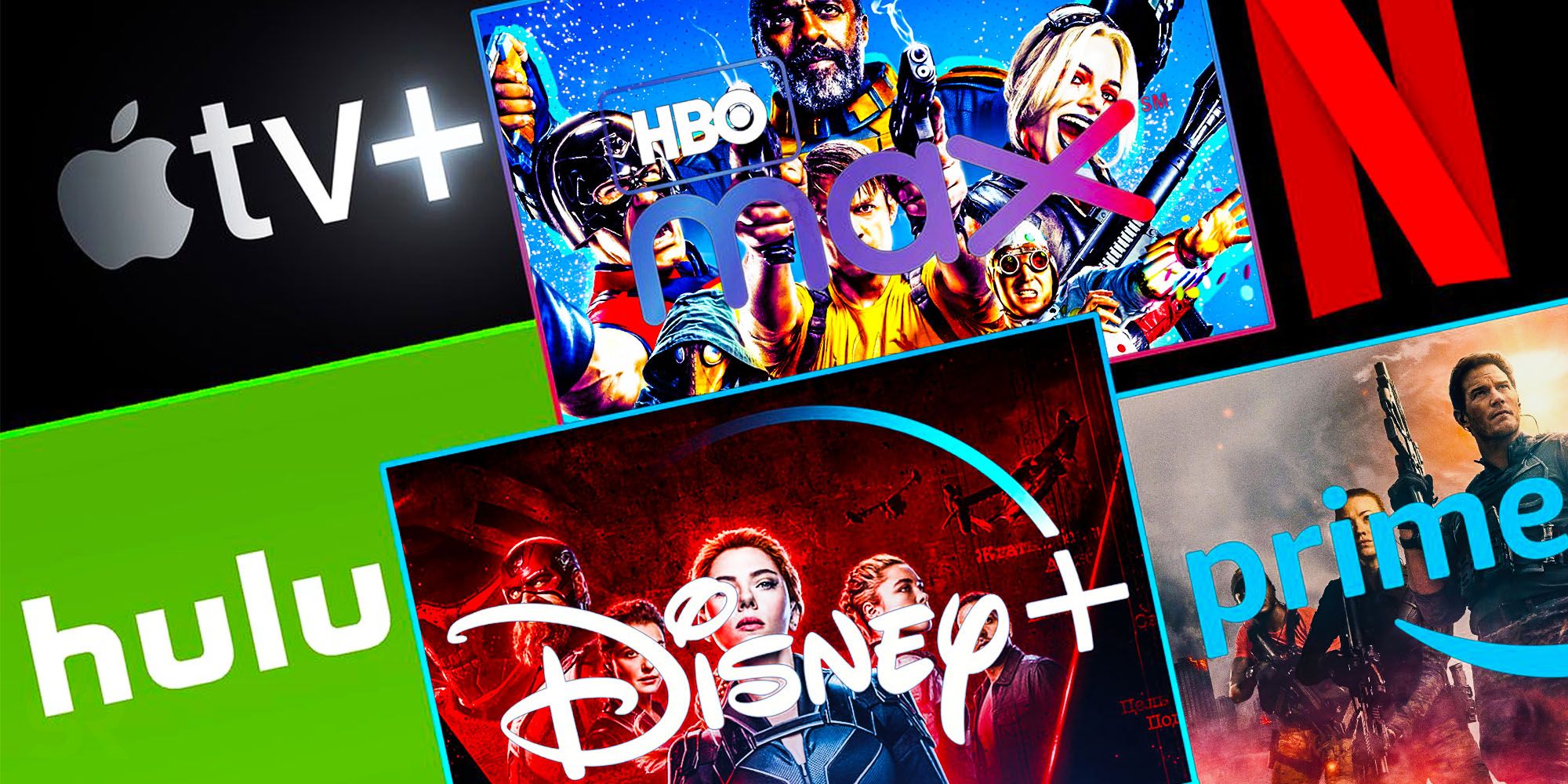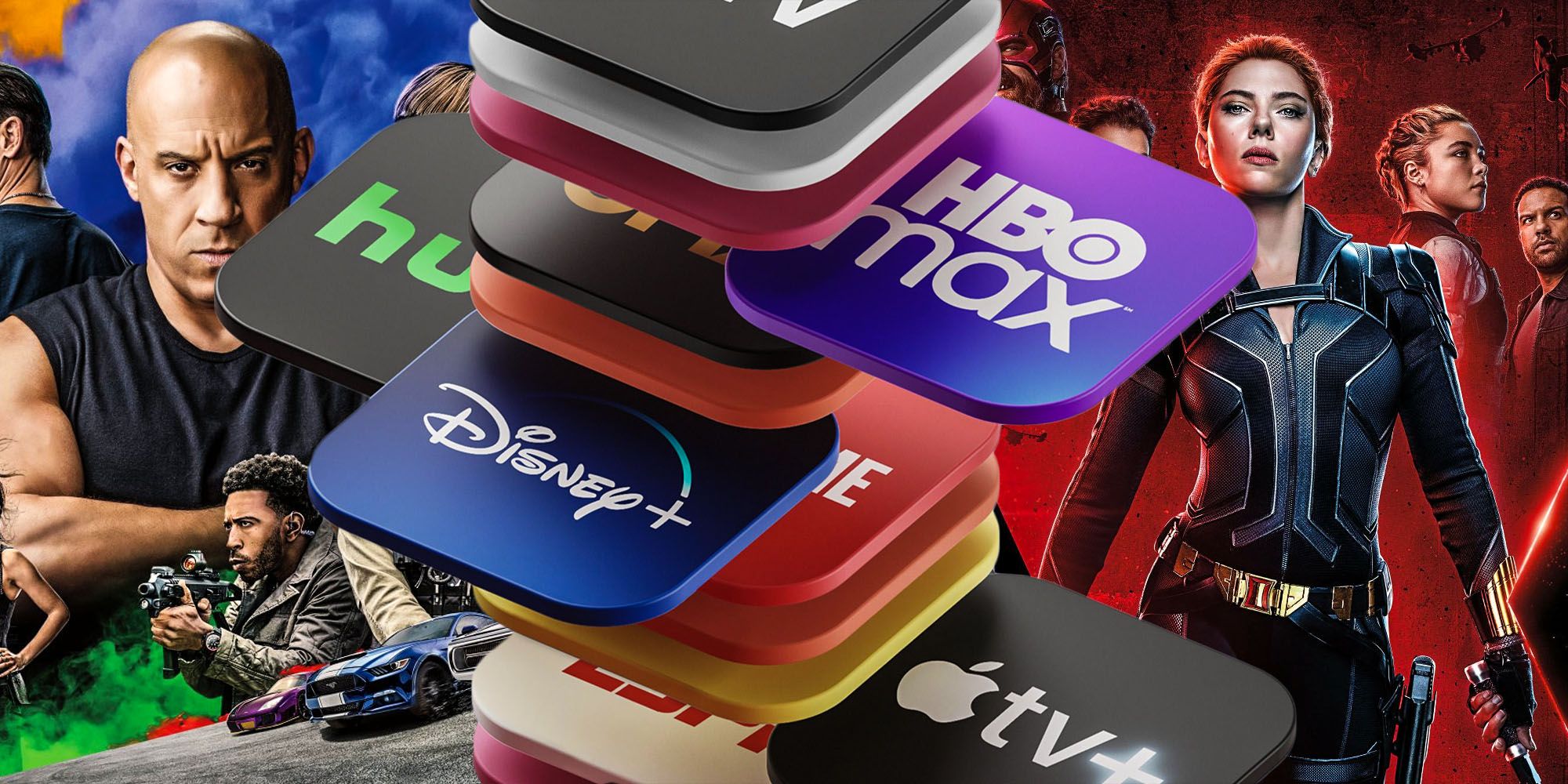With the rise of streaming, it's not yet clear how the performance of streaming movies should be evaluated compared to traditional theatrical releases, but simply multiplying the number of reported views by average ticket prices is a wildly inaccurate way of comparing streaming to box office. While it may seem like a quick and easy way to find out how much a streaming movie would have made if the same number of people had seen it in theaters, a variety of factors make the comparison wildly inaccurate, even as a rough ballpark estimate.
Box office tracking is so central to the way people think about movies that it's become hard for anyone to talk about the quality of a movie without making its box office haul a major part of the conversation. So, since streaming movie views don't generate box office revenue, how can their performance be compared? Movies that don't get released theatrically have traditionally been looked down on as lesser, but thanks to Netflix, Amazon Prime, Hulu, HBO Max, and more, streaming exclusive movies are better than ever, even garnering a significant portion of awards season nominations, and a few trophies, too.
The weird thing is box office never really had a proper place in that conversation for audiences in the first place. Sometimes it's helpful to use a movie's popularity as a way of inferring quality via social proof, but plenty of great movies flop at the box office and plenty of poorly reviewed movies bring in massive box office hauls. In some cases, such as Star Wars: The Rise of Skywalker, it's actually possible for $1 billion at the box office to be a letdown, while in others, a hundred million can be a major hit. So how does that reconcile with streaming, where revenue can't be assigned to specific movies at all?
Box Office Shouldn't Matter to Audiences
In an effort to understand the success or failure of a streaming release, it's not uncommon to see some simple box office math applied to estimate the popularity of a streaming movie, where the number of times a movie is reportedly viewed is multiplied by the number of tickets sold, but the resulting number is absolutely useless. The biggest reason is that the purchase experience is entirely different. There's purchase friction for almost every single theatrical ticket sold because tickets need to be purchased, whereas, on streaming, the cost is invisible and already incurred via automatic monthly payment, meaning there's no direct cost to hitting the play button on a streaming movie, versus far greater scrutiny over the decision to watch something on the big screen.
There's also a variety of other cost and convenience factors for the big screen such as travel time, cost of snacks, available showtimes, potential childcare expenses, and etc.. The cost and convenience of seeing a movie in the theater is a drastically different experience than streaming a movie, where the hardest part is usually sorting through all the options, meaning it's likely only a percentage of the people who stream a movie would have paid for a ticket to see the same movie it in theaters. However, on the other hand, there's also a wider audience for theaters. Streaming releases are usually only available to the subscriber base of a given streaming platform, ranging from a few million to a few hundred million, as opposed to theatrical releases are open to anyone within travel distance of a movie theater, which could number in the billions, depending on how wide the release is.
Streaming Movies Never Needed Box Office Revenue
Calculating box office potential of streaming releases doesn't make much sense for audiences, but it makes even less sense for the streaming platforms themselves. The reason box office is counted for the theatrical releases is because it matters for theaters and studios (and their stockholders) how much a movie is bringing in, because ticket sales are often one of the primary sources of revenue for theatrical releases. However, theatrical releases and streaming use fundamentally different revenue models, so even if the views-times-ticket-prices model had any semblance of accuracy, it's a completely arbitrary measurement of success for a movie designed to make money for a streaming service. It would be like calculating the potential ticket sales for a sporting event if the entire television audience were to purchase tickets. Obviously not everyone watching can even afford tickets or is passionate enough or lives in the right location to purchase tickets, but the broadcast audience for a sporting event is also already monetized through sponsorships and ad revenue and other means.
Streamers like Netflix are going into billions of dollars in debt to produce a content library, including hundreds of millions spent on content like Adam Sandler movies, just to ensure there's a library of exclusive content for future audiences and to draw new subscribers of various demographics, even if it's not profitable immediately. Some of these movies aren't even designed to break even, they're just there to fill out the catalog and attract a demographic. There's absolutely no value in trying to identify the box office potential of a movie that was designed to service a revenue model that doesn't depend on the box office anyway.
When you look at it this way, it's odd box office is so relied on as a metric in movie discussions in the first place. It's only an indicator of commercial success, and even then subject to multiple variables, such as budget and marketing. It's also entirely irrelevant when looking at streaming. In fact, without full transparency on viewership metrics from streaming platforms, or any definition of what success even means for a movie that draws revenue indirectly, regardless of how many times it's viewed, it's next to impossible for anyone other than the streamers themselves to assess the financial performance of streaming films, leaving audiences to focus on the artistic merits, which could be for the best.



